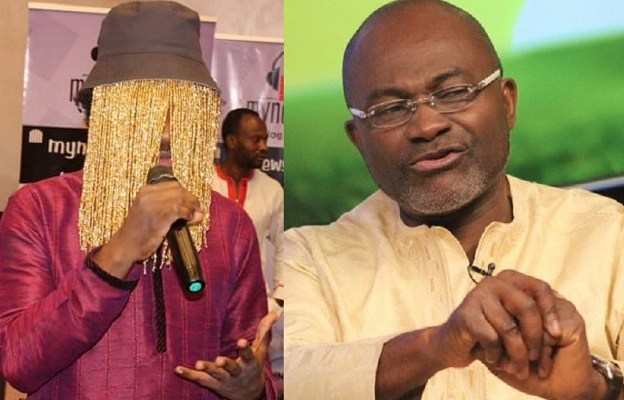Justice Baah was not biased towards Anas — Supreme Court

The Supreme Court of Ghana recently made a significant ruling, dismissing an application by famed investigative journalist, Anas Aremeyaw Anas against Justice Baah.
Anas had challenged a High Court decision that dismissed his defamation suit against Kennedy Ohene Agyapong, a Member of Parliament for Assin Central, claiming that the judge in the case, Justice Eric Baah, exhibited bias against him.
The Supreme Court’s decision underscores a pivotal moment in the legal discourse surrounding bias and the interpretation of judicial roles within Ghana’s judiciary system.
Anas’ initial defamation suit was a response to public statements and a broadcast by Agyapong, which painted Anas in a negative light, labeling him as “evil” and accusing him of blackmailing individuals under the guise of investigative journalism.
The crux of Anas’ certiorari application to the Supreme Court was his assertion that Justice Baah was biased and lacked the jurisdiction to preside over his defamation suit.
The Supreme Court, in a closely split decision, concluded that Anas’ claims of bias were unsupported by law, thereby upholding Justice Baah’s ruling.
Notably, the court articulated that the strong words used by Justice Baah in his judgment did not imply bias but were part of a necessary analysis of the evidence presented during the trial.
This analysis led Justice Baah to controversially describe Anas’ investigative methods as “investigative terrorism” rather than journalism, a statement that sparked considerable debate.
ALSO READ: Nigeria bans foreign trips by government officials
The majority opinion, led by Justice Samuel Asiedu, emphasized that a judge’s duty includes the examination, analysis, and drawing of inferences from the evidence before them.
The Supreme Court argued that Justice Baah’s comments were grounded in the evidence presented, including video footage purportedly showing efforts to entrap notable figures.
Thus, the court concluded that these observations did not amount to bias or prejudice against Anas.
The dissenting opinions, however, highlighted concerns about the implications of Justice Baah’s words, suggesting they demonstrated prejudgment.
Justice Yoni Kulendi expressed bewilderment at how a civil defamation case could lead to findings that painted Anas in a criminal light, pointing to a potential prejudice against the investigative journalist.
This ruling not only addresses the specific allegations of bias by Anas but also delves into broader issues of judicial discretion, the interpretation of evidence, and the delineation of civil and criminal judgments within Ghana’s legal system.
The decision has stirred a conversation about the judiciary’s role and the delicate balance judges must maintain between analyzing evidence and ensuring their language does not convey prejudice or bias, thereby preserving the integrity of the judicial process.
Share Our Post on The Topic ‘ Justice Baah was not biased towards Anas — Supreme Court’.
To Read More Stories, Click Here.


 Civil Service Announces 2024 Online Examination Details for Graduate Applicants
Civil Service Announces 2024 Online Examination Details for Graduate Applicants  BREAKING: President Biden Announces Decision Not to Seek Reelection
BREAKING: President Biden Announces Decision Not to Seek Reelection  Real Reason Behind the Appointment of Yohunu as Deputy IGP
Real Reason Behind the Appointment of Yohunu as Deputy IGP  GES 2024-2025 Academic Calendar for Public Schools
GES 2024-2025 Academic Calendar for Public Schools  GES to recruit university graduates and diploma holders-GES Director General
GES to recruit university graduates and diploma holders-GES Director General  Dr. Bawumia’s Smart Phone Credit Will Take 125 Years To Repay: A Misleading Promise
Dr. Bawumia’s Smart Phone Credit Will Take 125 Years To Repay: A Misleading Promise  GES is expected to announce reopening dates for public schools today
GES is expected to announce reopening dates for public schools today